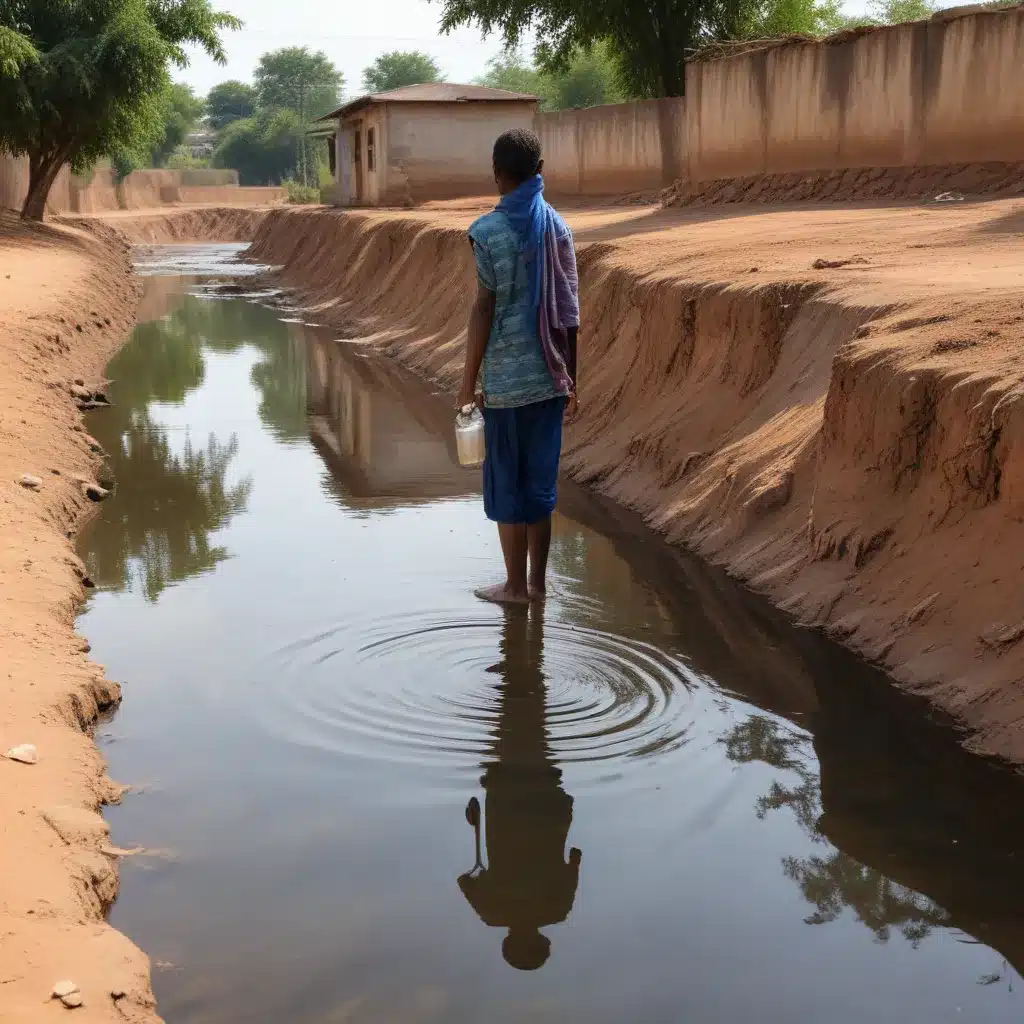
The Transformative Power of Community-Driven Water Solutions
Water sustains all life on our planet, yet millions around the world lack access to this vital resource. Community-driven initiatives are spearheading innovative solutions to address this crisis, weaving together infrastructure, public health, and cultural empowerment. In this article, we embark on a journey to uncover the profound impact of water access on communities, exploring how water projects can catalyze broader social change.
Amplifying Voices, Fostering Resilience
At the heart of sustainable water solutions lies the power of community engagement and local ownership. Hannah Bellamy, Managing Director of charity: water in the UK, shares profound insights into the lived experiences of those grappling with water scarcity. She recounts the drudgery and hardship faced by women in Malawi, who must traverse treacherous terrain multiple times a day to collect water from contaminated sources shared with livestock.
“The water crisis not only looks like not being able to access clean water and have that immediate human need met within the home but actually drudgery and chores and in many places about 80% of women will be doing the collecting of water which keeps them away from doing anything else.”
This arduous task not only robs women of time and opportunity but also exposes them to health risks, perpetuating a cycle of vulnerability. However, by partnering with communities to develop accessible, safe water infrastructure, organizations like charity: water empower women to reclaim their time and redirect their energy towards education, entrepreneurship, and collective resilience.
Bridging Divides, Uniting Humanity
Water insecurity often disproportionately impacts marginalized groups, exacerbating existing inequities. Bellamy emphasizes the unifying power of clean water, cutting across cultural, ethnic, and socioeconomic lines to rally diverse stakeholders around a common cause.
“It’s something we can all agree on. We even use that tagline. Clean water is the first thing you can talk to anybody about. And we have never had anyone say, that’s a really bad idea. Don’t provide clean water. They don’t need clean water.”
By fostering this sense of shared humanity, water projects can become powerful catalysts for social cohesion, weaving together individuals and communities that may have previously felt disconnected. Bellamy recounts the story of a woman in London who was moved to tears upon witnessing a visual representation of the arduous journeys undertaken by her family members in other parts of the world to access water.
Cultivating Holistic Prosperity
Access to clean water unlocks a cascade of positive outcomes, empowering individuals and communities to thrive. Bellamy explains how investing in water infrastructure generates a “ripple effect,” unlocking opportunities for economic development, improved health, and enhanced educational outcomes.
“Every pound that we invest in clean water infrastructure generates between £4-£8 within that local economy. By investing in clean water, investing in what may seem like a far-off future, what we’re doing is raising the potential of people on this planet.”
As women are freed from the burden of water collection, they can redirect their energy towards entrepreneurial pursuits, generating income and contributing to local economic growth. Children, in turn, are able to attend school regularly, laying the foundation for a brighter future. This holistic approach to development underscores the profound interconnectedness of water access and human flourishing.
Navigating the Complexity of Collaboration
Driving sustainable change requires harnessing the collective expertise and resources of diverse stakeholders. Bellamy highlights the transformative power of partnerships between charities, corporations, and community members, each contributing unique perspectives and capabilities.
For example, the Boston Consulting Group has provided pro bono strategic support to charity: water, while law firm Travis Smith offers vital legal counsel. Meanwhile, the apparel brand Beam Suntory mobilizes its employees to fundraise and contribute to clean water initiatives. By fostering these synergistic collaborations, water projects can amplify their impact and ensure long-term resilience.
A Call to Action: Empowering HR Professionals
Human resource (HR) professionals play a pivotal role in driving social change within the workplace. Bellamy emphasizes the importance of HR leaders recognizing the far-reaching impact of clean water access and empowering employees to engage with this critical issue.
“HR leaders are perfectly placed because they’re about people and bringing people together and moving people and creating movements. For me, this is something they could definitely do and I would love them to do and I’d love to chat with any of them.”
By establishing water-focused employee volunteering initiatives, incentivizing charitable giving, and cultivating a culture of social responsibility, HR professionals can harness the collective power of the workforce to transform lives and communities. This approach not only fosters employee engagement and well-being but also aligns with the growing demand for purpose-driven organizations that prioritize environmental and social impact.
Conclusion: Rippling Reflections, Lasting Transformation
The journey of providing clean water access is paved with profound cultural, social, and economic implications. As we have explored, community-driven water initiatives have the power to emancipate marginalized groups, unite diverse stakeholders, and catalyze holistic prosperity. By amplifying local voices, fostering collaborative partnerships, and empowering HR professionals to champion this cause, we can unlock a future where water sustains not only physical life but also the flourishing of vibrant, resilient communities.
The ripples of change sparked by water projects extend far beyond the provision of a basic resource, reverberating through the fabric of society and shaping a more equitable, connected, and thriving world. As we continue to navigate the complexities of water infrastructure development, let us embrace the transformative potential of community engagement and the universal language of water that binds us all together.

